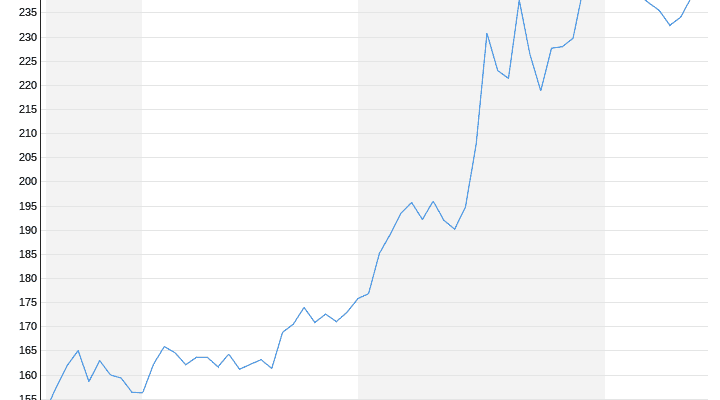Sunday April 18, 2021
E-car market is expected to grow strongly
VW is trying to catch up in China
The booming e-car market in China is currently still dominated by Tesla and Chinese car manufacturers. Volkswagen wants to change that and is investing 15 billion euros in e-mobility alone over the next four years. But the current shortage of chips is slowing production and creating uncertainty.
After a slow start in electromobility in China, Volkswagen wants to catch up with new models. In two to three years, the core brand wants to have a similarly high market share for alternative drives in the world’s largest car market as it does today for gasoline-powered vehicles with almost 15 percent, said China boss Stephan Wöllenstein before the opening of the international auto show in Shanghai.
“Volkswagen has a good tradition of coming a little later, but all the harder.” Volkswagen presented the large electric city SUVs ID.6 X and Crozz in a world premiere. The “flagships” of the ID.6 family are made in China and are supposed to bring about a turning point. VW currently only has a market share of three to four percent in electric cars. But Wöllenstein sees a “good chance” of reaching a double-digit percentage this year.
In 2021, the group wants to sell more than 100,000 e-cars in China. The booming market for e-cars there is currently dominated by Chinese competition and the US manufacturer Tesla. Volkswagen is investing 15 billion euros in e-mobility in China alone over the next four years. “We will need two to three years to overtake Tesla,” said Wöllenstein. He confirmed that Volkswagen had bought emissions certificates from the US manufacturer to offset its higher fleet consumption.
There is also criticism from human rights activists
He rejected the impression that a rival was being supported: “The deal was wanted from the start.” He reckons that the group will be able to meet the requirements of its own accord this year. When it comes to electromobility, the Wolfsburg-based company relies on SUVs, which have a high market share of 47 percent in China. Environmentalists criticized and spoke of an “environmentally harmful yesterday in a green cloak”. Even with an electric motor, an almost five-meter-long “SUV monster” does not fit into environmentally friendly mobility, said Greenpeace traffic expert Marion Tiemann.
There has also been criticism from human rights activists who denounce the persecution of the Uyghur minority in Xinjiang, northwest China, where the company has a plant. The car manager defended Volkswagen’s involvement in the region. For the plant in Ürümqi, as for all locations and suppliers in China, a code of conduct applies. Forced labor “cannot exist with us,” said the car manager. Furthermore, “diversity” is implemented, which also concerns the employment of ethnic minorities “without any form of discrimination”. “We have made it clear that we have to stand by our commitment in China as a whole, and we will also stand by our commitment in Xinjiang as long as we believe that it is feasible from an economic point of view,” said Wöllenstein.
Human rights groups estimate that hundreds of thousands have been sent to re-education camps in Xinjiang. China rejects the allegations and speaks of training centers. There are also increasing allegations of possible forced labor. Uyghurs are ethnically related to the Turks and feel oppressed by the ruling Han Chinese.
Chip problem is “far from being” solved
Volkswagen does around 40 percent of its global business in China, which has a share of around a third of the global automobile market. This year, the group in China wants to grow as fast as the overall market or a little faster, said Wöllenstein, who expects a “strong recovery”. Experts expect at least six percent growth, as China has the corona virus largely under control and life has normalized since the summer.
However, the lack of chips slows down production and creates uncertainty. Wöllenstein expects the semiconductor shortage to have “considerable effects” in the second quarter as well. The problem will persist until 2022. The fact that chip production is not in the hands of the auto industry “is a fatal problem that cannot be easily solved,” said Jia Xinguang, director of China’s Auto Dealers Association.
Cars have increasingly complex problems to solve, such as autonomous driving and energy management. The German industry expert Ferdinand Dudenhöffer also sees the problem “far from being” solved. It will take two or three years before new factories are set up, said the director of the Center Automotive Research in Duisburg. He reckons that China will become “the locomotive” here too. The country is planning a “chip alliance”.
.
